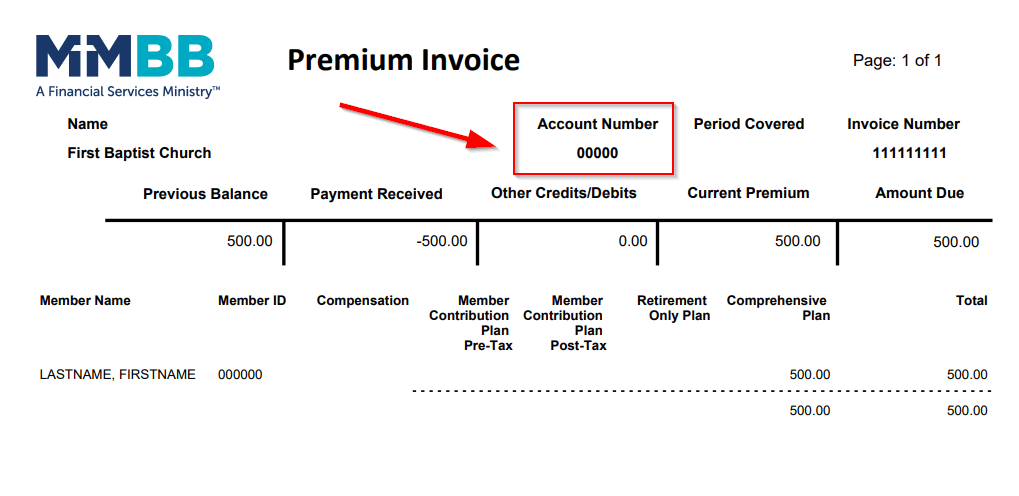Bill Foster
When you hear the word “trustee,” you might picture a quiet figure seated at the end of a long table, nodding thoughtfully during budget reviews. But in reality, a good church trustee does more than create and interpret financial spreadsheets — they are stewards of mission and financial resources.
More specifically, these individuals are entrusted with financial oversight of operating the church.
Typically, they are elected for their positions, and at most churches, they serve on a trustee board or finance committee. Although their job description might vary by denomination or church, their responsibilities generally fall into two categories: property and financial. Trustees are the legal custodians of the church property, and they exercise authority over all monetary gifts received by the church and the approval and payment of the bills and expenses.
As Scripture reminds us in Luke 16:10, “Whoever can be trusted with very little can also be trusted with much.” (NIV) This divine principle underscores the essence of faithful service: reliability in small matters reveals readiness for greater responsibility.
But what other qualities define a good trustee? Let’s explore the skills and virtues that transform their service into Godly stewardship.
1. Integrity and trustworthiness
It is no coincidence that “trust” is the root word and notable descriptor in the title; trustworthiness, integrity and dependability are essential characteristics for carrying out many of the trustee’s duties. According to Integrity Now Insurance, those serving in this capacity must model ethical behavior, ensuring that their actions reflect honesty, fairness and transparency. These ethics include disclosing potential conflicts of interest, maintaining confidentiality, and making decisions that are free from personal bias.
Transparency and accountability are equally essential. People in this role should be open about their decision-making processes and willing to explain and justify their actions. Such practices build goodwill within the trustee board, the congregation, and the community.
2. Financial literacy
The position doesn’t require someone who is a CPA, but a solid understanding of financial principles is crucial. Being able to read and interpret budgets, financial statements, and asset management reports enables the trustee to ask informed questions, identify red flags, and contribute meaningfully to financial discussions.
They must also be familiar with clergy tax issues, including the unique dual tax status of ordained ministers and the components of clergy compensation. Understanding these nuances helps ensure compliance and supports the financial well-being of clergy and staff.
3. Commitment to their church’s mission and their duties
People in this role should understand their church’s mission and be dedicated to it. They should understand that the business of the church cannot be treated as a purely secular exercise but is carried out in service to God. Trustees need to leave their egos at the door and recognize that they are working towards a goal that is bigger than any individual.1
The time commitment varies depending on the church, but someone in this position should be prepared for at least five to 10 hours of work a month. Donating time and effort on a regular basis, including attending various meetings, is a must.
4. Legal and regulatory awareness
Those in this role must be aware of the legal and regulatory frameworks that govern religious organizations. According to LegalClarity.com, this includes understanding governance policies, IRS requirements, and state laws related to churches.
It is also helpful if some of the trustees are familiar with insurance and liability issues since their board is responsible for risk management.
5. Strategic thinking
The position requires thinking beyond the day-to-day and focusing on the long-term health and mission of the church. Members of this board help set strategic priorities, evaluate risks, and ensure that decisions align with the church’s vision.
This role necessitates balancing mission-driven goals with financial sustainability. People serving in this capacity must be able to assess whether ministry programs and initiatives are both meaningful and fiscally responsible.
6. Collaboration and teamwork
Trustees do not operate in isolation. They must collaborate with their counterparts on the board, staff, and external advisors. In some churches they might also function as members of a joint board that includes the church deacons in major financial decisions. Collaboration includes listening actively, respecting diverse viewpoints, and building consensus.
Inclusive decision-making strengthens the effectiveness of a trustee board. It should encourage participation from all colleagues on the board and ensure that voices from underrepresented communities are heard and valued.1
7. Willingness to learn
Members of this board should be familiar with church bylaws, denominational structure, and mandates. Trusteeship is a dynamic role that requires ongoing education. Regular training in financial and tax reporting, structuring and negotiating fair compensation, risk management, and the structure and governance of non-profits help people on this board stay informed and effective.
Common pitfalls to avoid
Even well-intentioned people can fall into traps that undermine their effectiveness in this role. Some common pitfalls include:
Conflicts of interest and lack of disclosure: Failing to disclose personal or professional conflicts of interest can erode trust and lead to legal complications.2
Passive involvement: Active participation is essential. Missing meetings or rubber-stamping decisions weakens oversight.
Misunderstanding fiduciary duties: They must understand that their primary duty is to the church — not to individual staff, donors or constituents.
A trustee is more than a title — it is a sacred trust. People in this position are called to lead with wisdom, integrity, and faith. Their decisions help shape the future of the churches they serve and affect the lives of countless others. By cultivating strong, informed, and ethical trustees, churches can thrive and fulfill their missions with excellence.
1Getting on Board Blog, “The Top 10 Traits of a Good Trustee,” August 18, 2021, Penny Wilson.
2LegalClairty.com, “Legal Duties of Trustees in a Baptist Church,” June 21, 2025, Legal Clarity Team
Back to Financial Resource Center









